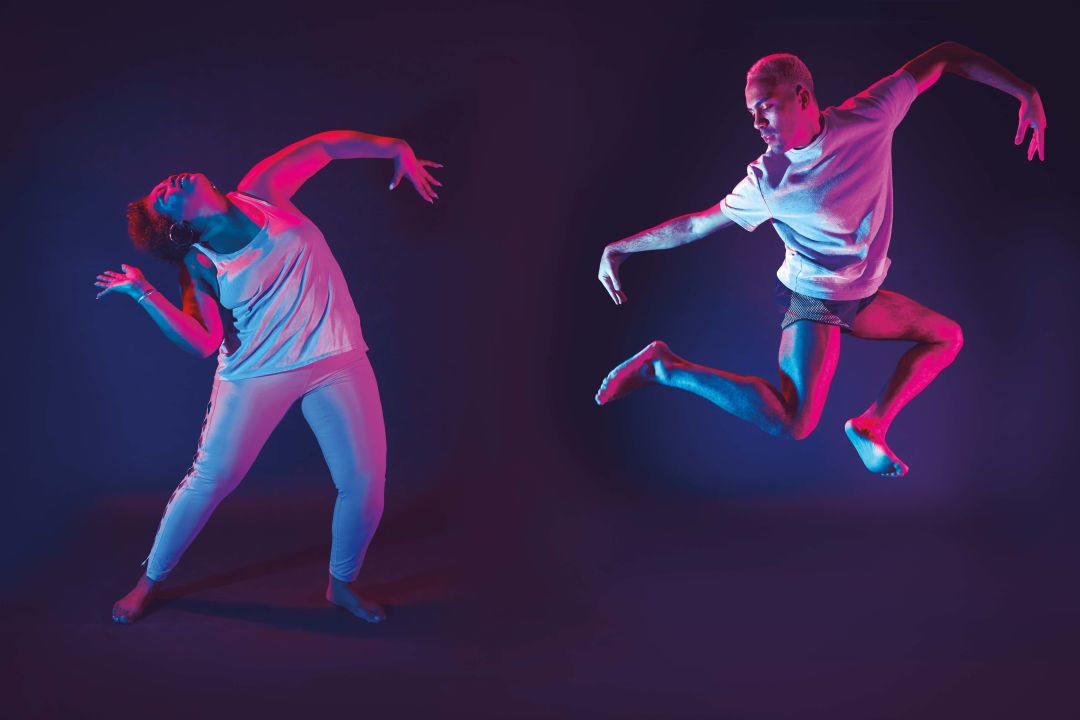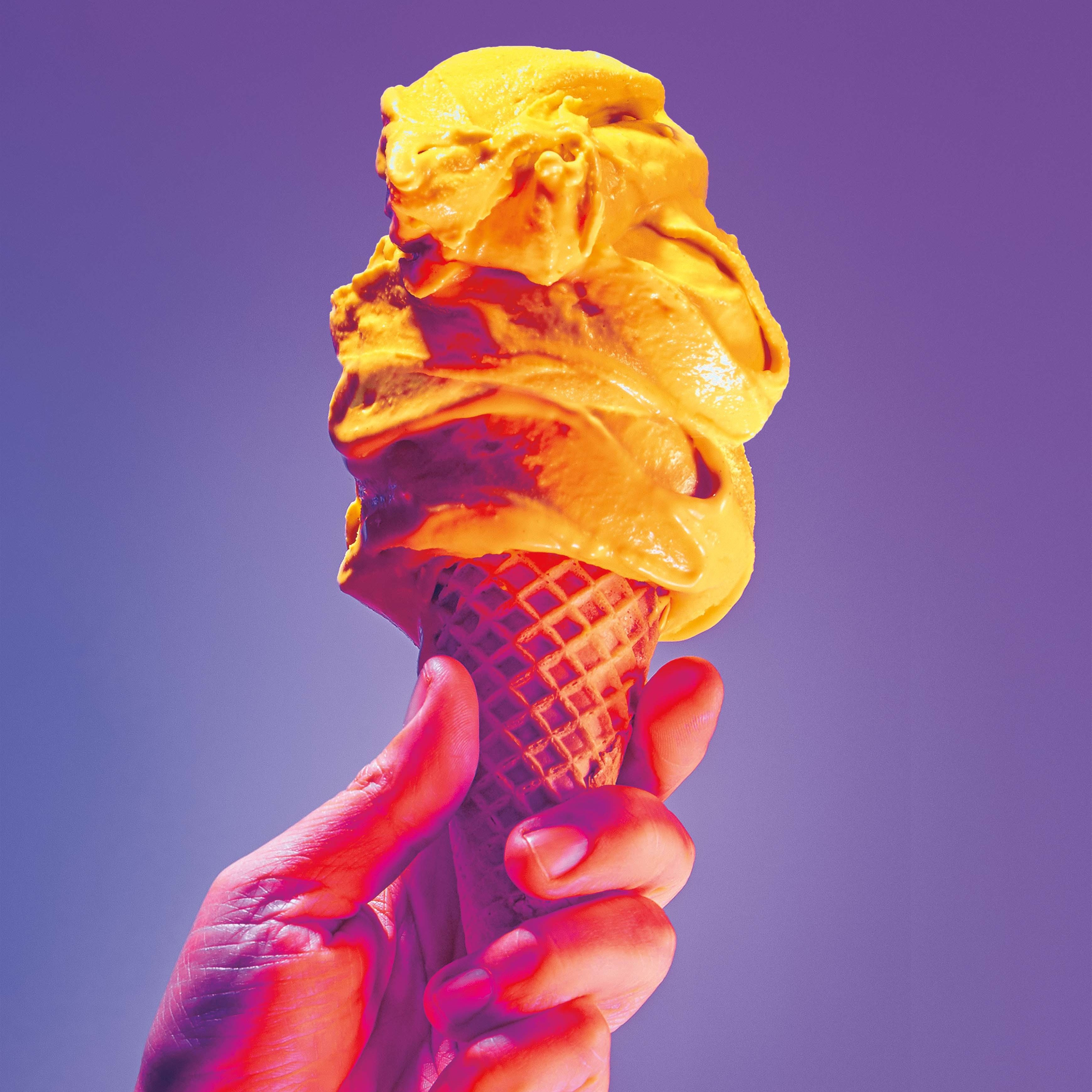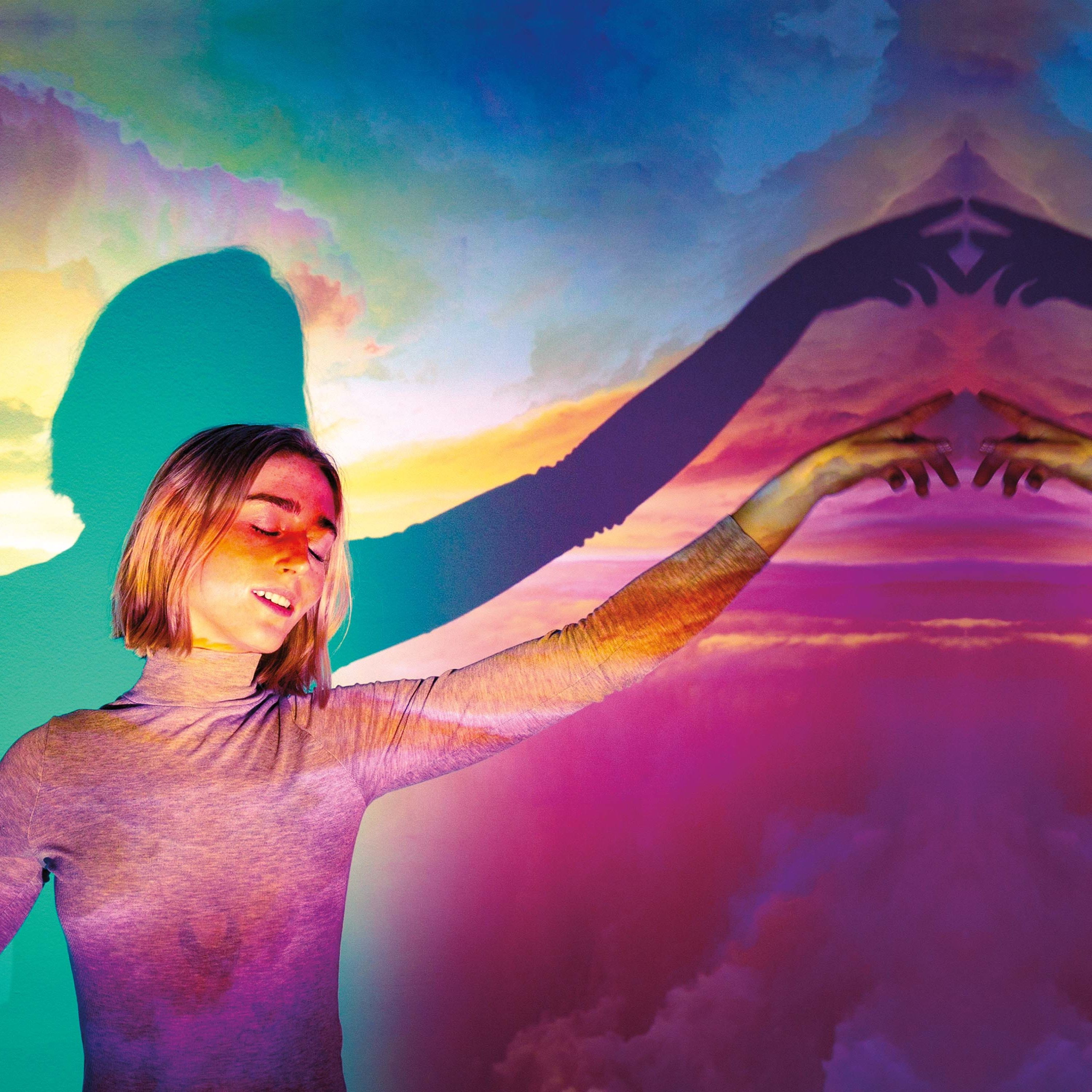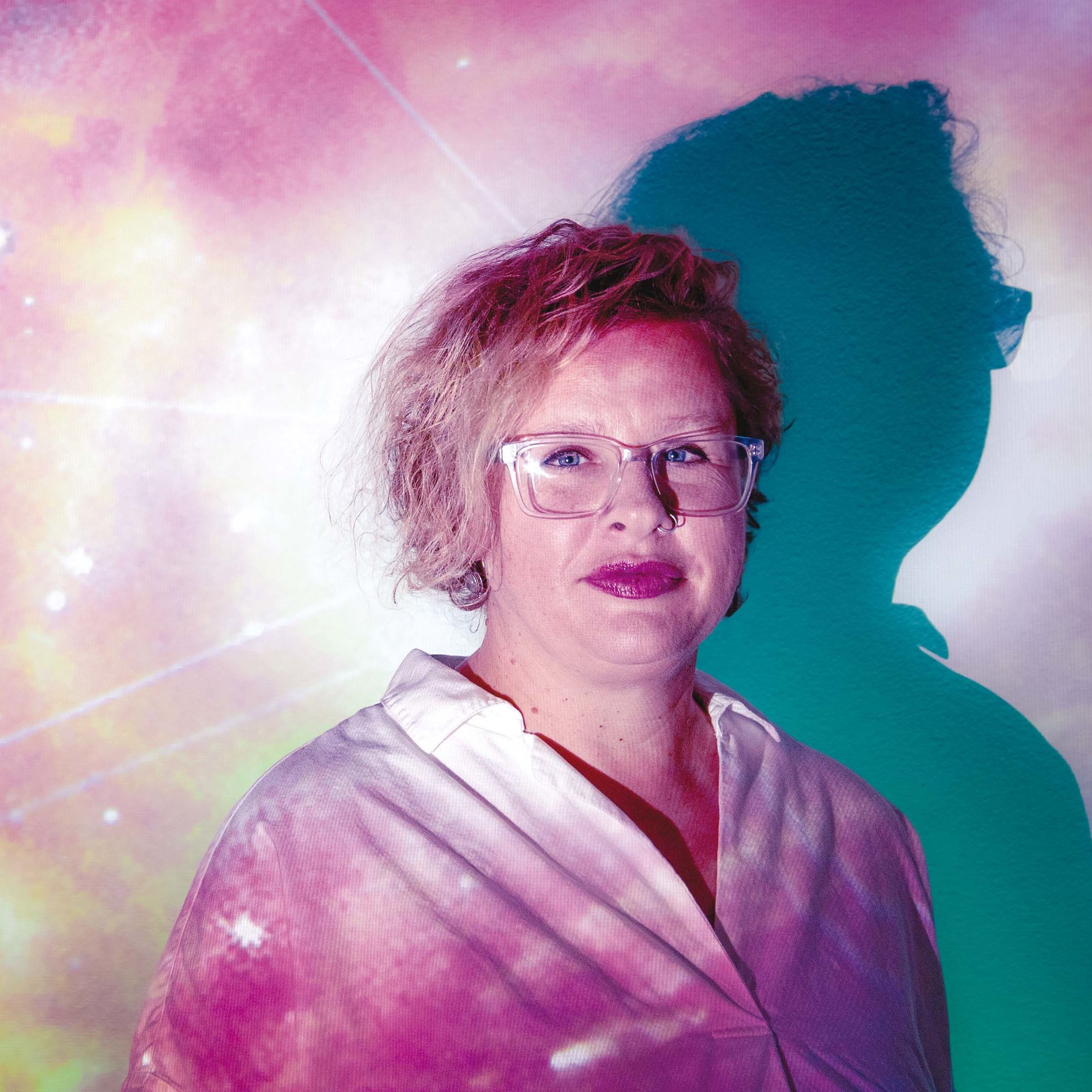Cully's Nonprofit Workout Studio Puts Community First

(com)motion instructors Leina’ala Slaughter and Brandon Harrison
Image: Nicolle Clemetson
Gyms can be intimidating places: toned, Instagram-ready bodies and taskmaster trainers with all the warmth of Miss Trunchbull. Dance studios, with their cliques of willowy, leotard-clad creatures, can be even worse.
At (com)motion, the experience is everything but. In fact, the year-old movement studio—rangy class offerings include ballet, hula, Pilates, introductory karate, body-positive yoga, and Afrobeat-fueled barre—is almost aggressively friendly. Show up to the small storefront in Northeast Portland’s Cully neighborhood, and you’re liable to be pulled into conversation about the stress of family gatherings, or the pros and cons of owning a microwave. Teachers might start class by asking everyone to name something they’re thankful for; they might give each student a hug on the way out. On a recent Saturday, passers-by stopped to peer in the floor-to-ceiling windows, no doubt awestruck that a couple dozen grown adults could dip and pop with such transparent glee at 10:30 a.m.
“I just want it to feel super welcoming,” says Theresia Munywoki, (com)motion’s project manager and sole full-time employee. The studio is owned and operated by Our 42nd Avenue, a nonprofit focused on thoughtful economic development of this still-scrappy neighborhood. It opened last winter with funding from urban renewal agency Prosper Portland, with the explicit aim to create an inclusive, multicultural fitness experience that would welcome movers of all bodies, backgrounds, and ages. Adds Munywoki: “I want people of color and queer people and people with disabilities to know that they can come here as students, and [I want] instructors who represent those communities.”
Financial accessibility is a priority, too. A few classes operate on a donation basis, while many others use sliding-scale pricing (think ballet for $5–15, or $5–10 for hula). And what you’re paying goes directly to the teacher: they pay $45–50 to rent the studio for two hours, and after they’ve recouped those costs, they keep the rest.
For trainer Tyra Lovato, (com)motion is “an oasis”—a refuge from the body negativity and air of exclusivity that can plague the fitness world. Lovato had also been frustrated by Portland’s lack of classes led by black teachers. Her response? An hour she calls My People’s Cardio. “The idea was to not make it a dance class and not make it a fitness class,” says Lovato. “It’s a party.” (Indeed: This is the Saturday-morning class that made those pedestrians gawk.) She goes on: “There’s so much in the world—so much that we’re seeing, so much that we’re hearing. But we’re not given the opportunity to release all of that. And that’s the purpose of this class.”
Looking for more community-building sweat seshes? Try these.
Beyond its fun and fiercely supportive classes, Bleeding Hearts Kettlebell Club offers an intersectional feminist book club and organizes fundraisers and donation drives for local nonprofits.
The Circus Project got its start in 2008 teaching circus arts to homeless and at-risk youth. It now also offers classes—aerial, clowning, contortion—for kids and adults alike, which help support the nonprofit’s outreach programs.
Portland’s chapter of the nationwide November Project, which began as an exercise accountability pact among friends, gathers at the Moda Center every Wednesday at 6 a.m. for an hourlong cardio-and-bodyweight workout. It’s free, it’s outdoors no matter the weather, and the high fives and hugs abound.











